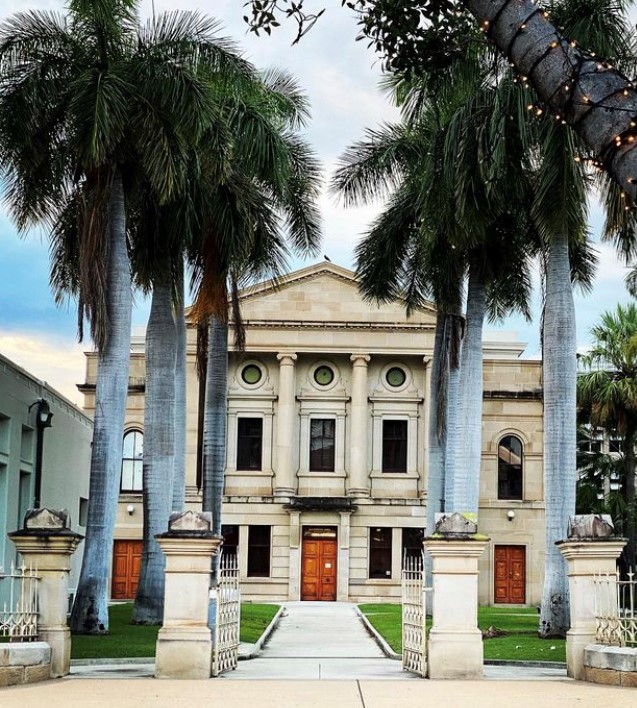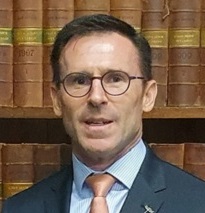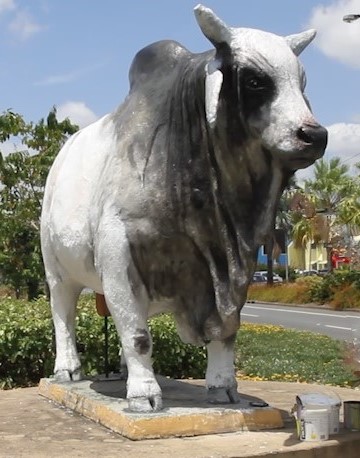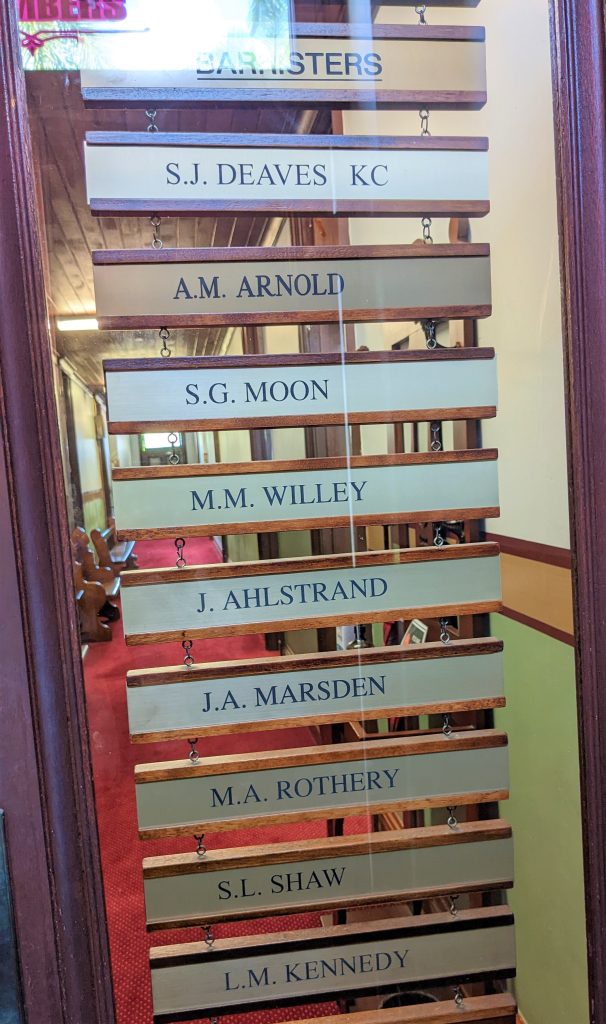FEATURE ARTICLE -
Issue 91: Mar 2023, Regional Bar
The city of Rockhampton, straddling the Tropic of Capricorn and the Fitzroy River, was first settled by the Archer brothers in 1855. Within six years, solicitors were practising in the city and, by the late 1800s, the first barristers established themselves here.
The Rockhampton bar has, since then, been home to such legal luminaries as the Honourable Des Derrington KC, the Honourable Peter Connolly QC, the Honourable Stanley Jones KC and the Honourable Duncan McMeekin KC[1]. Members of the Rockhampton bar who have been appointed to the District Court include Fred Maguire, Robert Hall, Peter White, Keith Dodds, Grant Britton, Brian Harrison and Jeffrey Clarke.
Thomas Joseph Ryan practiced as a barrister here in the first decade of the 20th century, apparently whilst also working as a master at the Rockhampton Grammar School. He went on to become Premier of Queensland.
Rockhampton is the unofficial capital of the region known as Central Queensland. In fact, for a period of time, just prior to the turn of the 20th century, it was seriously jockeying for position to be the capital of a breakaway State.
The region includes industry on a large scale including coal mining, aluminium smelting, liquified natural gas production and export and electricity generation. Farming and grazing, particularly of beef cattle, are also significant contributors to the economy and the character of the region – Rockhampton is often referred to as the “Beef Capital”. The city hosts Beef Week every three years. It is an internationally recognised exposition which brings 100,000 people through the gates
Rockhampton is, of course, a Central Registry of the Supreme Court of Queensland. The first Central Judge, Justice Virgil Power, was appointed in 1895. Two of the last three Central Judges, the Honourable Alan Demack AO and the Honourable Duncan McMeekin KC, although not native to Rockhampton, settled here following their retirement from the bench. They have made significant contributions to the local profession since retiring.
The current Central Judge, the Honourable Justice Graeme Crow, is an entirely local product having been born, raised and educated in the city. His Honour spent the whole of his post-admission time at the private bar in Rockhampton and, upon taking silk, led the local bar from 2010 until his elevation to the bench in 2018.
Rockhampton enjoys a resident District Court Judge, His Honour Judge Jeffrey Clarke, and regularly hosts a second District Court Judge on circuit. The city also boasts a resident Judge of Division 2 of the Federal Circuit and Family Court of Australia, Her Honour Judge Anne Demack. Both judges formerly practised at the local bar.
There are three resident Magistrates, led by Cameron Press, also a former locally based barrister.
The bar in Rockhampton, as elsewhere, historically was housed in a number of chambers. For the past decade, however, the entire bar has made its home in the former Supreme Court building, located next door to the Rockhampton Court Complex. Now known as “Old Supreme Court Chambers”, this stately heritage building was constructed in 1887 and was the seat of the Central Judge until 1998. The legally and politically significant shearers’ strike trial of 1891 was held in the building, and Sir Samuel Griffith conducted sittings therein.

The Old Supreme Court Chambers
There are presently nine members in the ranks of the Rockhampton private bar. Such members have between one and twenty-five years experience. One-third of the group currently serve the Bar Association on bar council or bar committees. The Director of Public Prosecutions also maintains a permanent office in Rockhampton which is currently staffed by four Crown prosecutors.
The legal profession in Rockhampton is known for its collegiate and “no nonsense” approach. Keyboard warriors don’t do well here. It is difficult to avoid coming face-to-face with your opponents on a fairly regular basis. The Rockhampton bar is well supported by the region’s legal firms as well as firms throughout the State and interstate. The value of local knowledge appears to be fairly widely recognised.
The work undertaken by the private bar is varied and includes criminal law, family law, personal injuries law, estate law and commercial law. The members of the local bar also travel regularly throughout the State from Cairns to Southport (Rockhampton is relatively well serviced by air services) and west to Longreach, such that it is rare for all of the members of chambers to be in the building on the same day.
It is said that familiarity breeds contempt, but the Rockhampton bar is a cooperative group and what happens in the Courtroom tends to stay there. Having said that, with the number of Courts operating in Rockhampton and the frequency of travel by the private bar, one’s opponents are often from the bars of other centres.
Although civil trials and contested applications are far less common than they once were, the Supreme Court at Rockhampton punches well above its weight. There are multiple hearings in the Court each year and the contribution of successive Central Judges to the jurisprudence of this State is significant.
A review of the Queensland Judgments website shows no less than 235 published judgments by McMeekin J and no less than 89 judgments by Crow J, sitting at first instance. The Rockhampton bar is well represented in these judgments.
The local solicitors’ association, the Central Queensland Law Association, convenes an annual conference over two days. This conference is well attended by lawyers from across the region and is ordinarily attended by the Chief Justice. The local bar presents at the conference.
When the then editor of the Australian Law Journal, Mr Justice P W Young, in 1992, thought the Journal should “look at things from the viewpoint of those who practice the law outside Sydney, Melbourne and Brisbane”, he decided that “one of the best places to start was Rockhampton”. His Honour visited Rockhampton on the day of our Opening of the Law Year church service before visiting local solicitors, barristers’ chambers and observing proceedings in the District Court. He considered that Judge Dodds’ presiding over the Court was done “in the same manner and with the same court trappings as would be the case were he dealing with the matter in either Sydney or Melbourne”.[2]
Indeed, the practice of barristers in Rockhampton is no different to the practice of barristers in the capital cities, we just don’t have to put up with traffic and queues; but maybe the occasional bull!
Apropos of the opening of Rockhampton’s “Old Supreme Court Chambers” see https://www.hearsay.org.au/opening-of-the-old-supreme-court-chambers/
[1] William Allen and Arthur Bradford, both of whom practised in Rockhampton in the first half of the twentieth century, served as Acting Supreme Court Judges.
[2] (1992) 66 Australian Law Journal pp 621 – 640.




 The Old Supreme Court Chambers
The Old Supreme Court Chambers